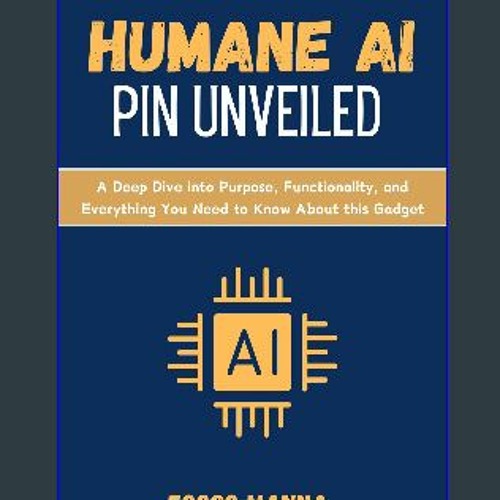Google Search's AI Mode: A Deep Dive Into Functionality And Impact

Table of Contents
Understanding the Functionality of Google Search's AI Mode
Google Search's AI mode leverages advanced artificial intelligence to understand and respond to user queries in a fundamentally different way than traditional search engines. This functionality is manifested in several key areas:
Conversational Search Capabilities
The AI mode facilitates a more natural and conversational interaction with the search engine. Instead of simply typing keywords, users can ask complex questions in everyday language. The AI interprets the nuances of these queries, providing comprehensive and contextually relevant answers.
- Example: Instead of searching "best Italian restaurants near me," you can ask, "Where can I find a great Italian restaurant with outdoor seating close to my current location?" The AI will understand the implied preferences and deliver more precise results.
- Follow-up Questions: The AI mode often enables follow-up questions, allowing users to refine their search within the same conversational thread. This dynamic interaction streamlines the search process and delivers more accurate information. This is powered by advanced natural language processing (NLP) and conversational AI techniques.
- Clarification Requests: If the AI detects ambiguity in a user's query, it might request clarification to ensure accurate results. This proactive approach minimizes frustration and improves the overall search experience.
Enhanced Understanding of Search Intent
Traditional search engines primarily rely on keyword matching. However, Google's AI mode employs advanced algorithms to understand the intent behind a search query. This "semantic search" capability goes beyond simple keyword analysis, delving into the underlying meaning and context of the words used.
- Intent Recognition: The AI can distinguish between different types of searches, such as informational, navigational, or transactional searches. This improves the relevance and accuracy of the results.
- Contextual Understanding: AI helps Google understand the relationships between different keywords and concepts, providing a more holistic understanding of the user's needs. This contrasts sharply with traditional keyword matching, which often produces a list of loosely related results.
Advanced Summarization and Synthesis of Information
The AI mode excels at synthesizing information from multiple sources to provide concise, easy-to-understand answers. This is particularly helpful for complex topics where users need a quick overview of key information.
- AI-Powered Summarization: The AI intelligently extracts and summarizes crucial information from various sources, presenting it in a clear and accessible format.
- Information Synthesis: The AI combines information from different sources to create a cohesive and comprehensive answer, often avoiding the need for users to sift through numerous individual results.
- Reliable Information Filtering: The AI plays a crucial role in identifying and filtering out unreliable or low-quality sources, ensuring that users receive accurate and trustworthy information. This relies heavily on Google's knowledge graph and other trusted sources.
Multimodal Search Capabilities
While not yet fully realized, there's significant potential for Google Search's AI mode to integrate with other data types, such as images and videos. This opens the door for more interactive and immersive search experiences.
- Image Search Enhancement: AI could improve image search by understanding the context and content of images more accurately, leading to more relevant results.
- Video Search Integration: AI could analyze video content, enabling users to search for specific moments or information within videos, going beyond simple keyword tagging.
The Impact of Google Search's AI Mode
The integration of AI into Google Search has far-reaching implications, affecting both user experience and SEO strategies.
Improved User Experience
The AI mode significantly enhances user experience by providing faster, more relevant, and easier-to-understand search results.
- Faster Results: AI streamlines the search process, delivering more accurate results faster than traditional methods.
- More Relevant Results: The AI's understanding of search intent leads to highly relevant results, improving user satisfaction.
- Simplified Search: The AI-powered interface simplifies the search process, making it more accessible to a wider range of users, regardless of their technical expertise.
Changes to SEO Strategies
The shift towards AI-powered search demands a change in SEO strategies. SEOs must now focus on creating high-quality, informative, and contextually relevant content.
- Focus on Quality Content: AI prioritizes high-quality, authoritative content, making content marketing more crucial than ever.
- Semantic Keyword Optimization: SEOs need to optimize content for semantic keywords, focusing on the meaning and context of words, rather than simply targeting specific keywords.
- Adapting Link Building Strategies: Link building strategies must adapt to align with AI's focus on authority and relevance.
Ethical Considerations and Potential Challenges
While AI offers significant benefits, it also presents ethical challenges.
- Bias in AI Algorithms: AI algorithms can inherit biases from the data they are trained on, leading to potentially unfair or discriminatory results.
- Misinformation: The ability of AI to generate human-like text increases the risk of the spread of misinformation and deepfakes.
- Transparency and Accountability: Transparency and accountability are crucial to ensure responsible development and deployment of AI-powered search technologies.
Conclusion: Embracing the Future of Search with Google's AI Mode
Google Search's AI mode represents a significant leap forward in search technology. Its conversational capabilities, enhanced understanding of search intent, and advanced information synthesis capabilities offer a dramatically improved user experience. For businesses, adapting SEO strategies to align with AI's focus on quality content and semantic understanding is paramount. By embracing these changes and focusing on creating high-quality, relevant content, businesses can leverage the power of Google's AI mode to improve their online visibility. Stay ahead of the curve by learning more about optimizing your content for Google Search's AI mode and leveraging its capabilities to improve your online visibility.

Featured Posts
-
 Half Domes Victory Winning The Abn Group Victoria Pitch
May 22, 2025
Half Domes Victory Winning The Abn Group Victoria Pitch
May 22, 2025 -
 Antiques Roadshow Couples Jail Sentence National Treasure Trafficking Case
May 22, 2025
Antiques Roadshow Couples Jail Sentence National Treasure Trafficking Case
May 22, 2025 -
 De Ultieme Gids Voor Tikkie Betalingen In Nederland
May 22, 2025
De Ultieme Gids Voor Tikkie Betalingen In Nederland
May 22, 2025 -
 El Regreso De Javier Baez Salud Y Rendimiento En La Mira
May 22, 2025
El Regreso De Javier Baez Salud Y Rendimiento En La Mira
May 22, 2025 -
 Abn Amro Sterke Stijging Occasionverkopen Door Toenemend Autobezit
May 22, 2025
Abn Amro Sterke Stijging Occasionverkopen Door Toenemend Autobezit
May 22, 2025
